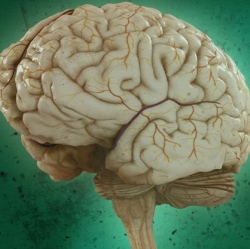
Stimulating the part of the brain which controls movement may improve recovery after a stroke, research suggests. Studies showed firing beams of light into the brains of mice led to the animals moving further and faster than those without the therapy. The research, published in Proceedings of the National Academy of Science, could help explain how the brain recovers and lead to new treatments.
The Stroke Association said the findings were interesting. Strokes can affect memory, movement and the ability to communicate. Brain cells die when their supply of oxygen and sugars is cut off by a blood clot. Stroke care is focused on rapid treatment to minimise the damage, but some recovery is possible in the following months as the brain rewires itself. The team at Stanford University School of Medicine investigated whether brain stimulation aided recovery in animal experiments. They used a technique called optogenetics to stimulate just the neurons in the motor cortex, the part of the brain responsible for voluntary movements, following a stroke. After seven days of stimulation, mice were able to walk further down a rotating rod than mice which had not had brain stimulation. After 10 days they were also moving faster.
